This is a project about hair. I have observed that in modern society, “hair loss” has been a problem for young people. Many people begin to worry about abnormal hair loss.
这是一个关于头发的项目。我观察到,在现代社会中“脱发”已经是一个困扰着年轻人的问题了。许多人都开始因为不正常的掉头发而焦虑。
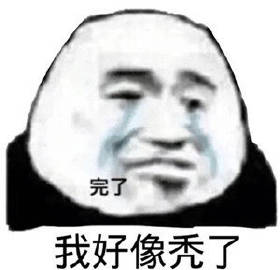
So I use “hair” as a clue to make all kinds of associations, such as knitting sweaters, blocked sewer outlets, hard to drink coffee, half eaten instant noodles, computer screens that light up all night, weeds planted in flowerpots and unstressed curtains. Based on these descriptions, I have done a lot of experiments, trying to express the relationship between these associations and hair in the way of painting and installation.
于是我以“头发”为线索进行了各种各样的联想,比如织毛衣、被堵住的下水道口、很难喝的咖啡、吃了一半的泡面、整夜亮着的电脑屏幕、花盆里种的野草和没拉紧的窗帘。根据这些描述我做了大量的实验,尝试用绘画和装置的方式表达这些联想跟头发的关系。

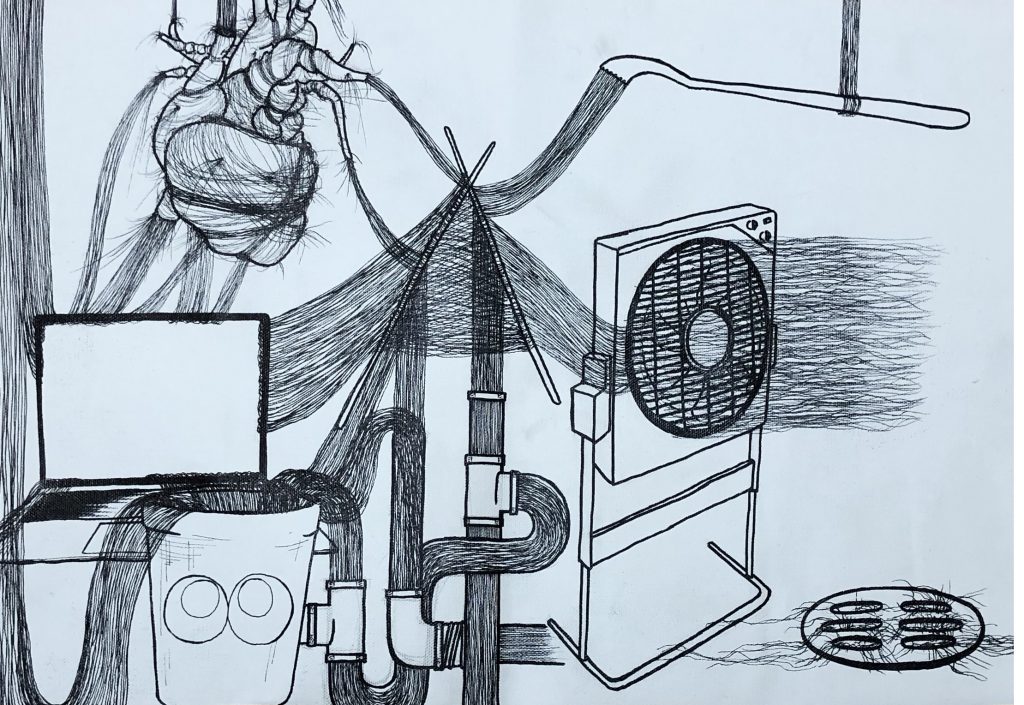
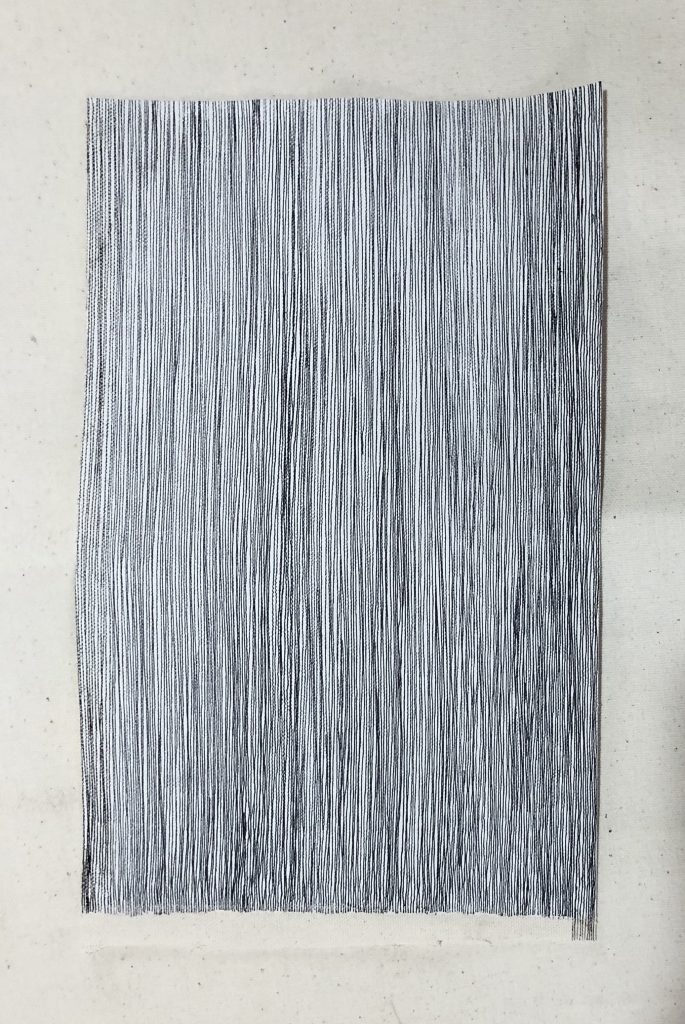
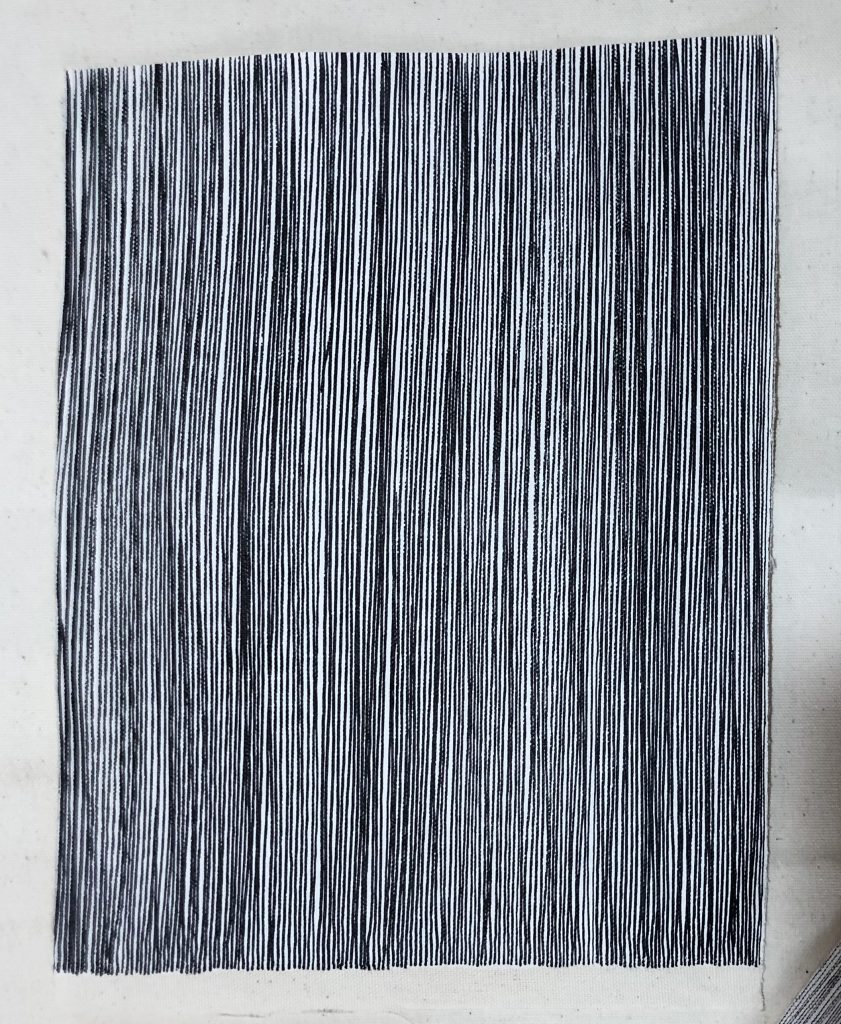
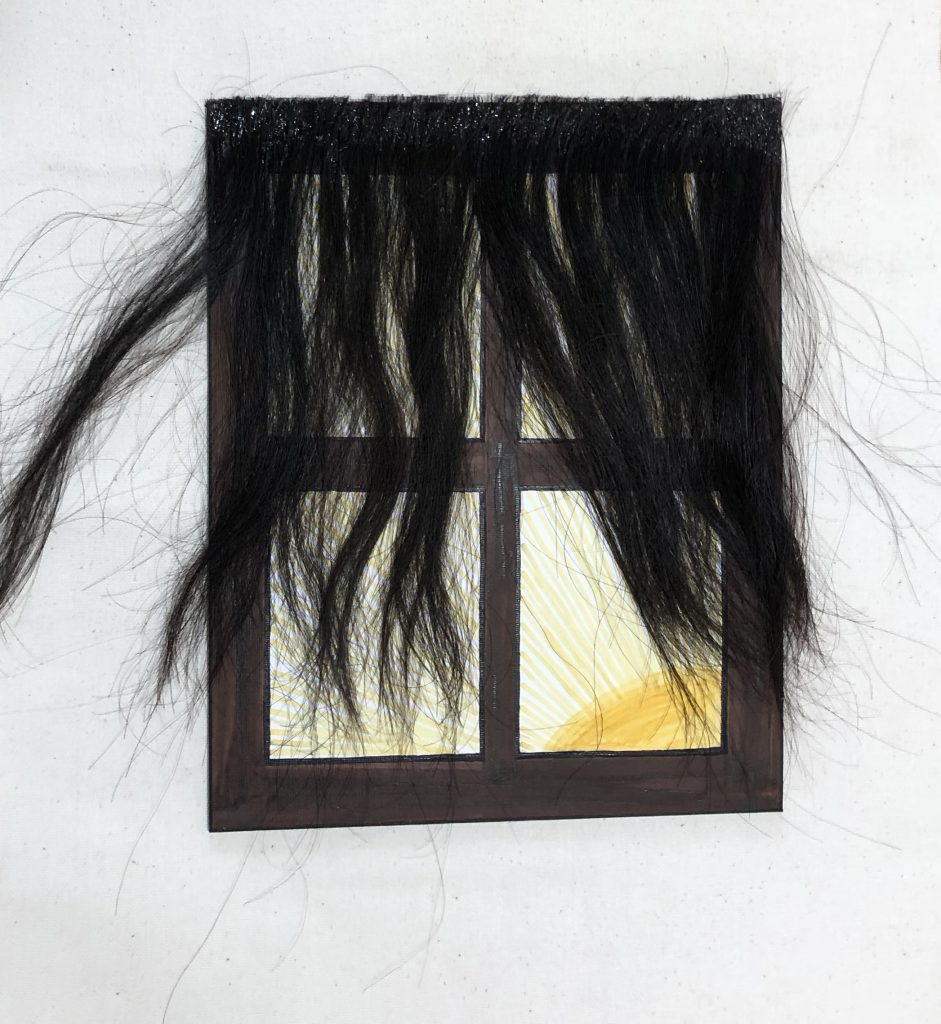

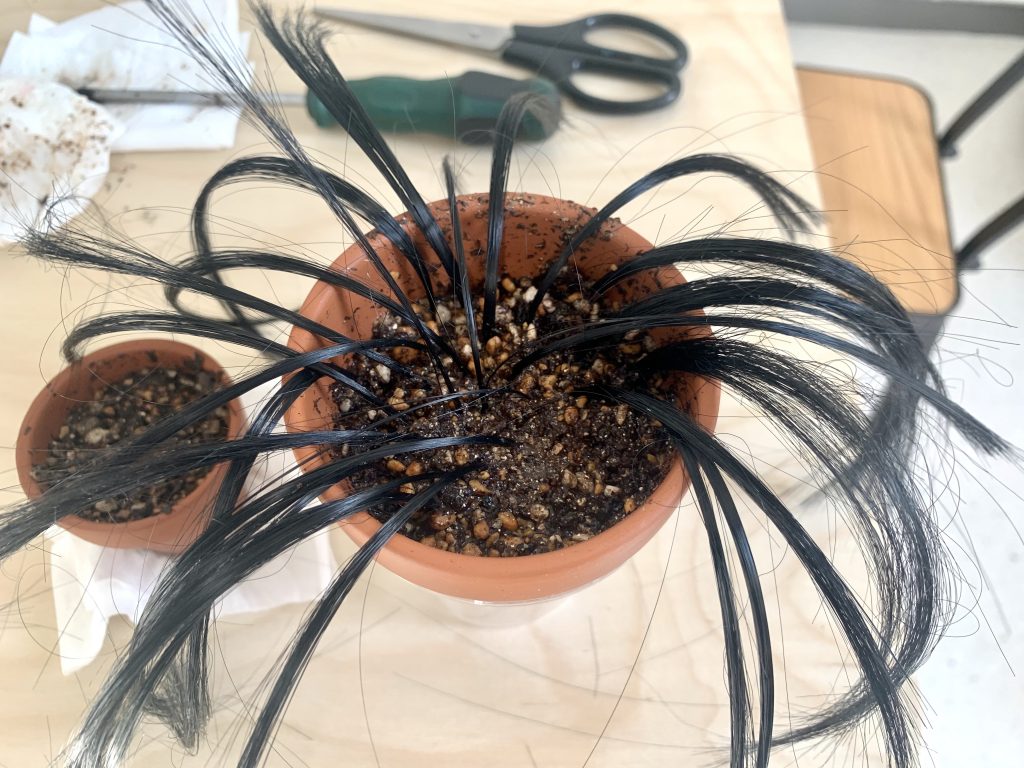
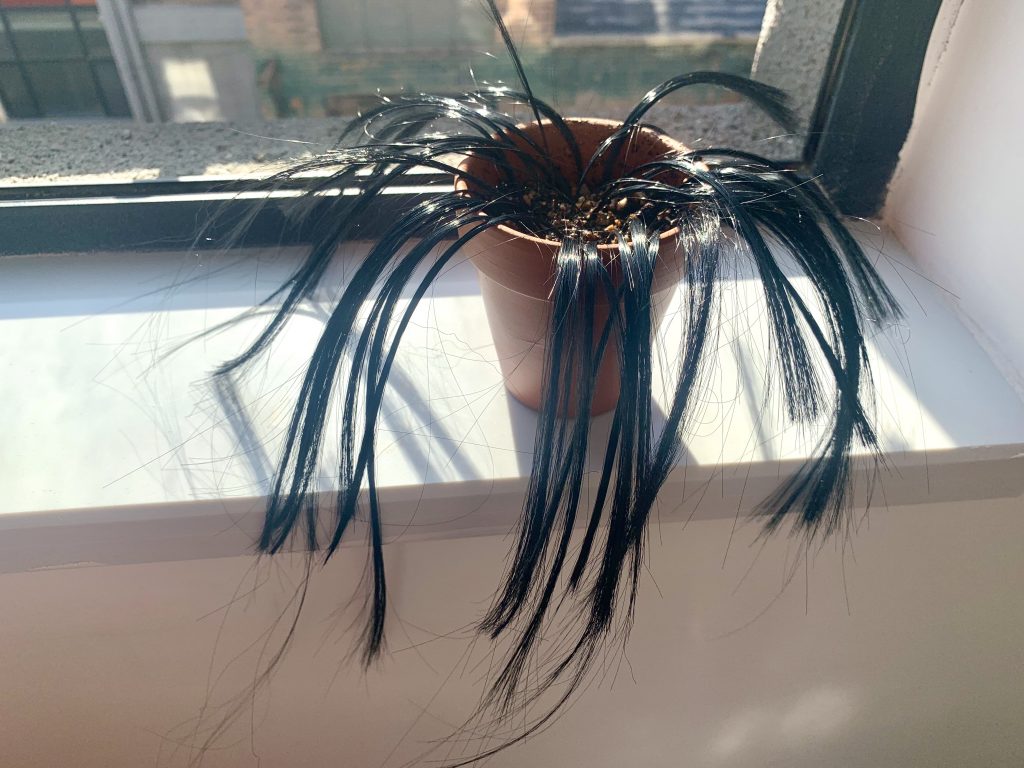
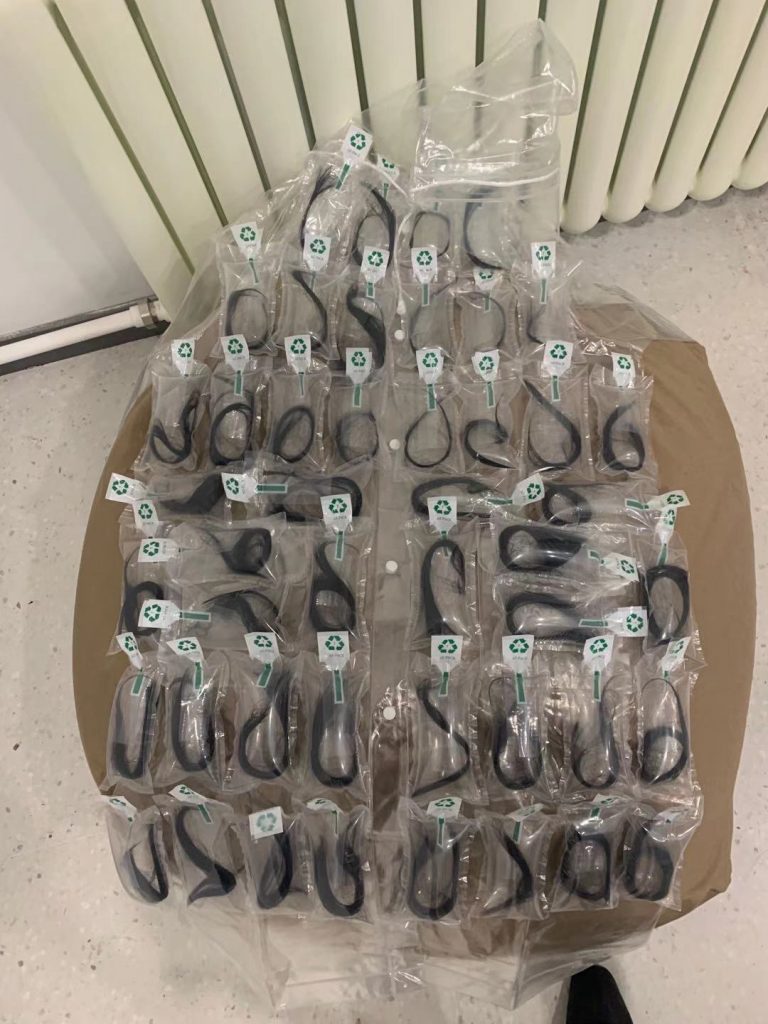
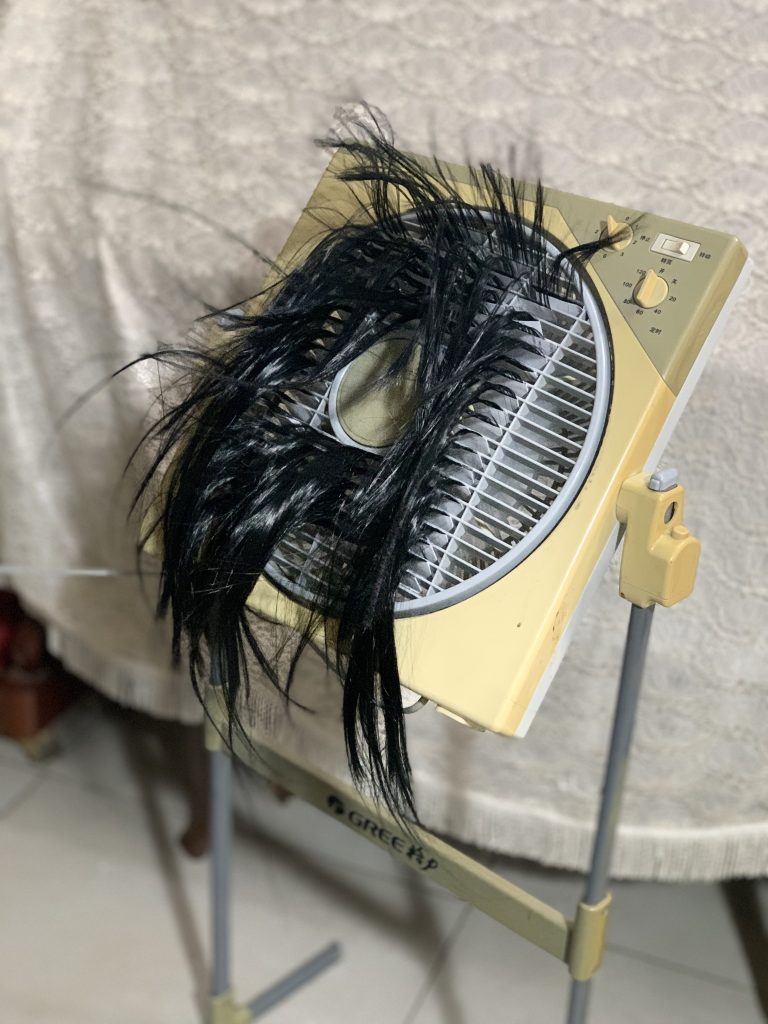
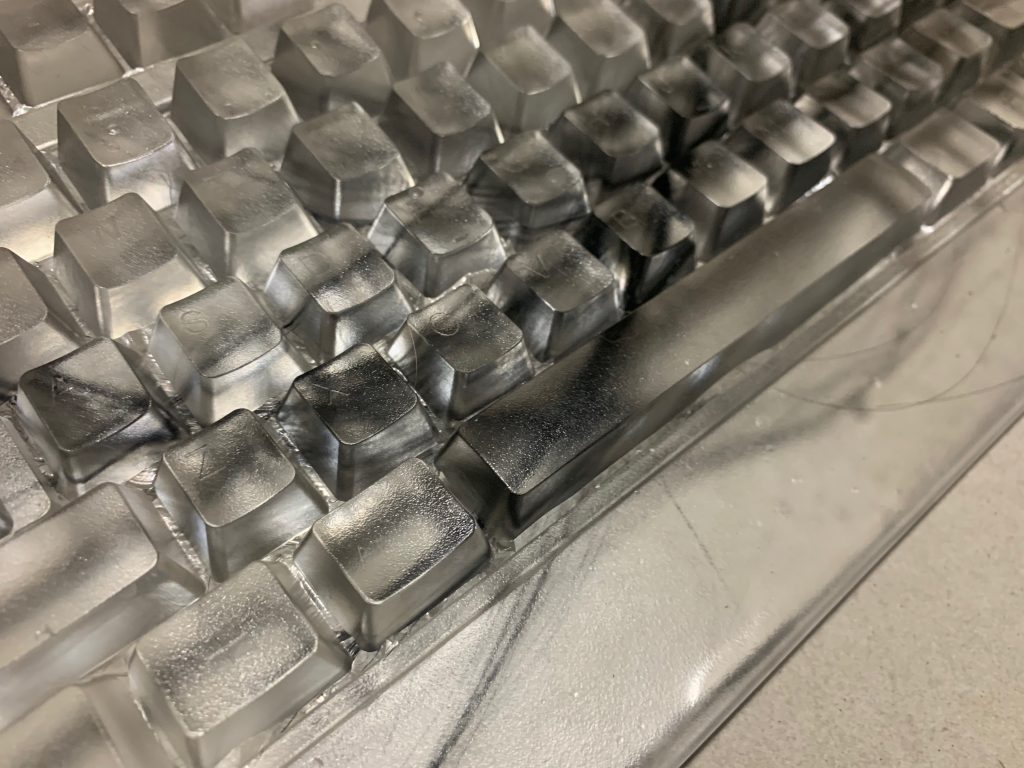
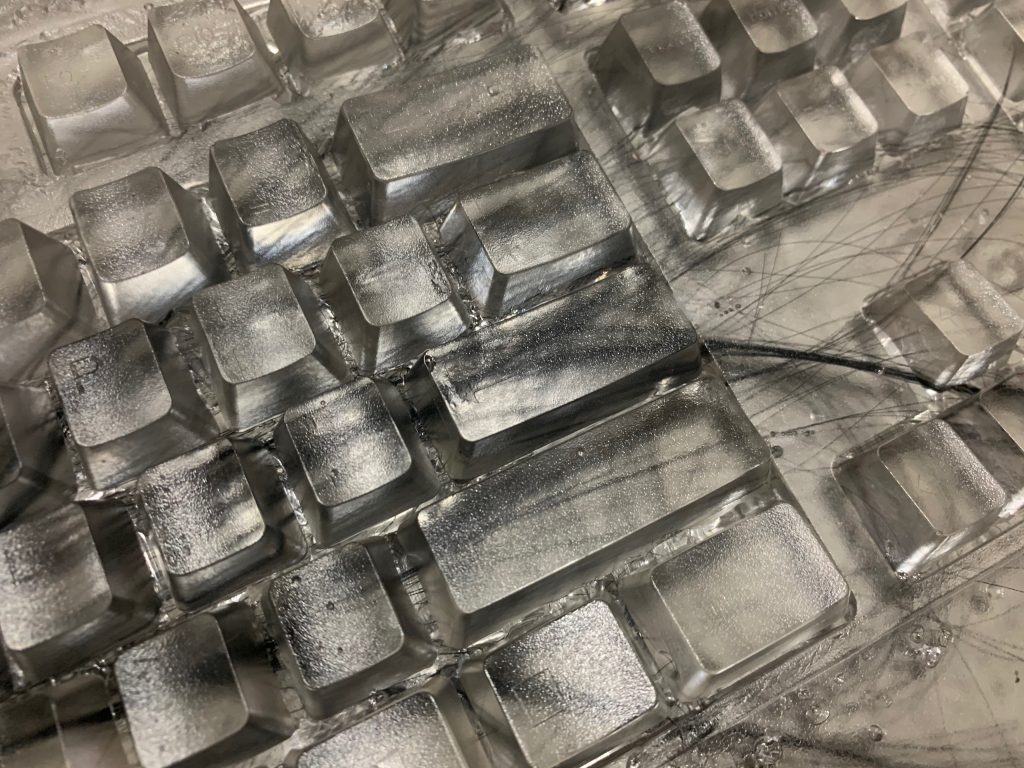
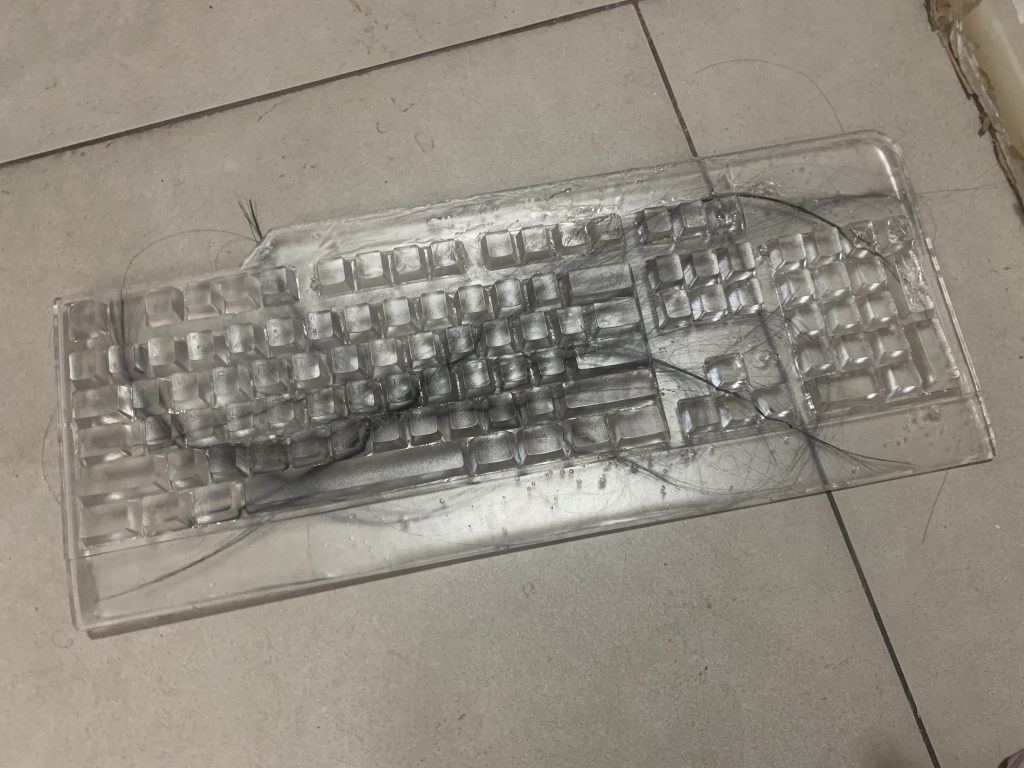
Then I found that when people talk about hair loss, they always mention the phenomenon of “staying up late”. My previous experiments were also more or less related to staying up late. Many people around me, including myself, are used to going to bed after 12am. Although it is very bad for our health, it seems that we are used to this lifestyle. I found that people who are used to staying up late are always in a bad mood during the day. They are worried about their own lives and continue to maintain this habit. Some people call it “punky health preservation”. On the other hand, studies have shown that hair loss is closely related to staying up late.
接着我发现,当人们谈到脱发,总是会提到“熬夜”这个现象。之前做的实验也都多多少少跟熬夜相关。我身边包括我自己在内的很多人都习惯了晚上十二点以后睡觉,尽管对身体非常不好,但大家好像已经习惯了这种生活方式。我发现习惯熬夜的人白天精神总是不太好,一边担心自己的生命一边继续维持这种习惯,有人叫它“朋克养生”。而另一方面,研究表明脱发与熬夜有着密切的关系。
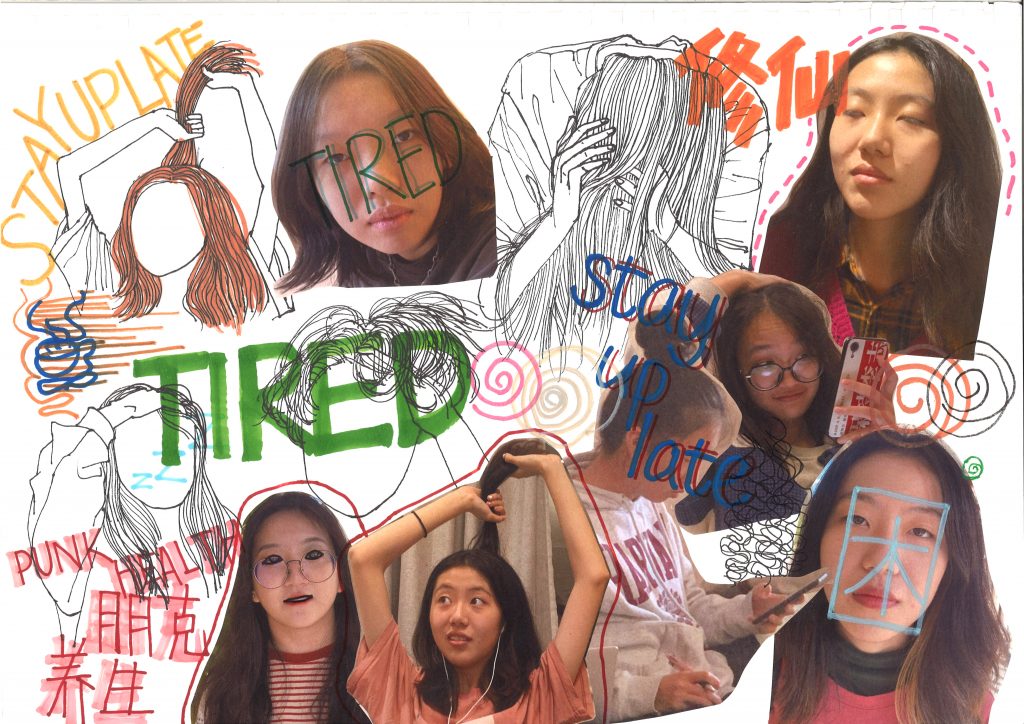
Through further research, I found that hair loss is not the most essential problem of people who stay up late (or almost most of the young people in contemporary society). On the contrary, it is people’s indifference to health, which leads to more and more serious and neglected behavior of staying up late. People regard their hair as a treasure and buy all kinds of expensive washing and care products to care for them, but rarely see the phenomenon behind it.
通过进一步的调研,我发现脱发并不是熬夜人群(或者几乎可以说是当代社会中的大部分年轻人)最本质的问题所在,反而是人们对健康的漠视,导致了越来越严重且不被重视的熬夜行为。人们将头发视若珍宝,购买各种昂贵的洗护产品来护理它们,却很少看到它背后反映的现象。

When it comes to the relationship between hair and health, Chinese people discussed this topic many years ago. Through research, I found that ancient people did not dispose of their hair at will, but regarded it as a part of the body and cherished it very much. At that time, people thought that hair represented a person’s energy, so their love for hair also showed that people in ancient China would pay more attention to their body than in modern times.
而说到头发与健康的关系,中国人在很多年前就探讨了这个话题。通过调研我发现古代的人们不会随意处置自己的头发,而是将它们视为身体的一部分,非常爱惜。在那时人们认为头发代表了一个人的精气神,所以他们对头发的爱护也说明了中国古代的人相较于现代会更加重视自己的身体。
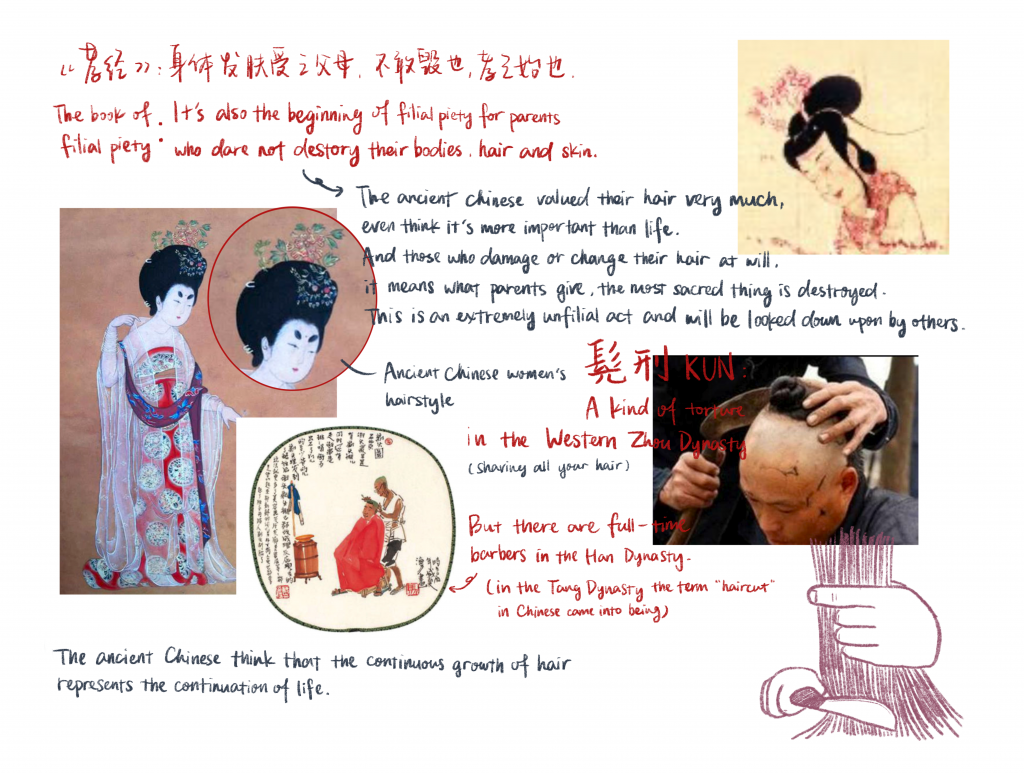
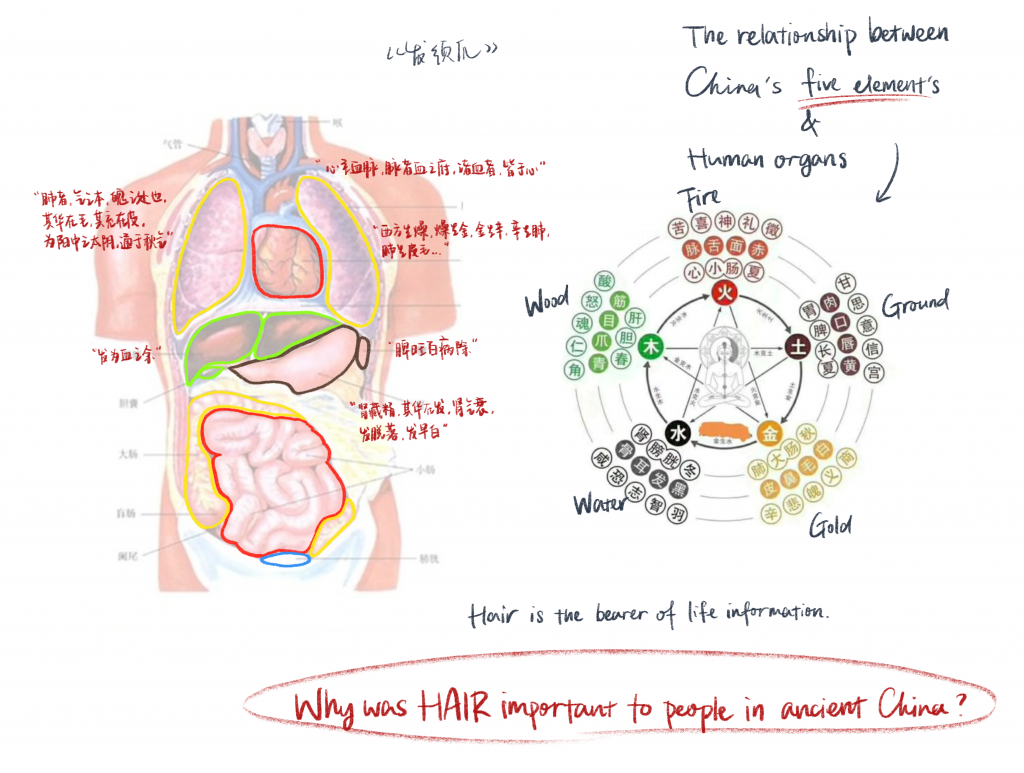
Therefore, hair as a symbol of the loss of health exists in the social subtext. People’s anxiety about hair loss implies a fear of loss, but it seems that people do not pay much attention to this.
因此,头发作为一种象征了健康损耗的符号存在于社会潜台词中。人们对脱发的焦虑暗含着一种对损耗的恐惧,但似乎大家都不太关注这一点。
From this, I think of the Australian artist Fiona Roberts’s work, Intimate Vestiges, in which she discusses the imbalance between mind and body, especially the mind’s perception of body disharmony, including the concepts of dislocation, emotional projection, wave perception, fear and paranoia. Her works remind me of people’s desires, such as wealth, prestige, marriage, status and so on. Nowadays, people have an almost paranoid pursuit of these things. However, the wages earned by working overtime and the achievements gained by staying up late are actually consuming their health.
由此我想到了澳大利亚艺术家Fiona Roberts的作品Intimate Vestiges,她在作品中讨论了心智与身体之间的失调关系,尤其是心灵对身体的不和谐的感知,其中包括了错位、情感投射、波动感知、恐惧和偏执等概念。她的作品让我又想到人们的欲望,像是财富、声望、婚姻、地位等等。现在的人对这些东西有着近乎偏执的追求,然而一次次加班换来的工资、一次次熬夜换来的成就,终归在无形中消耗着健康。
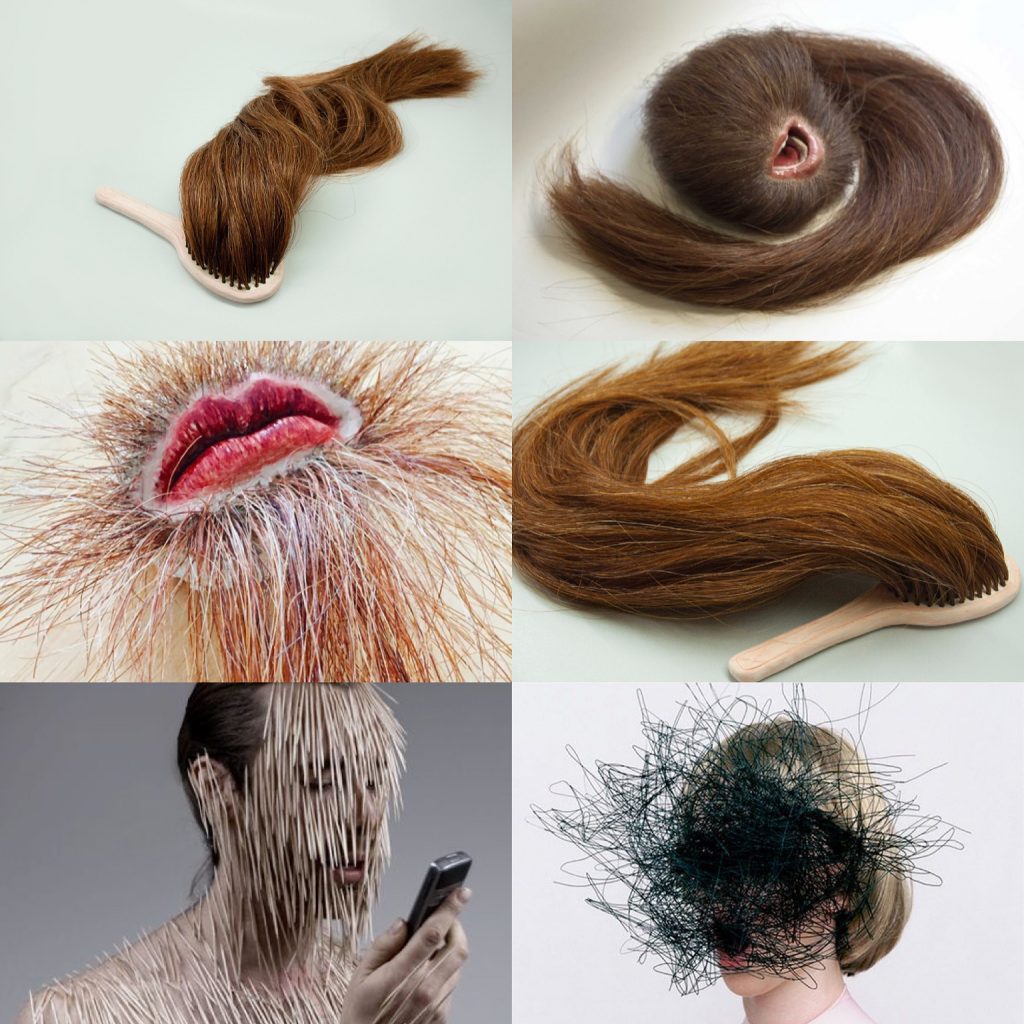
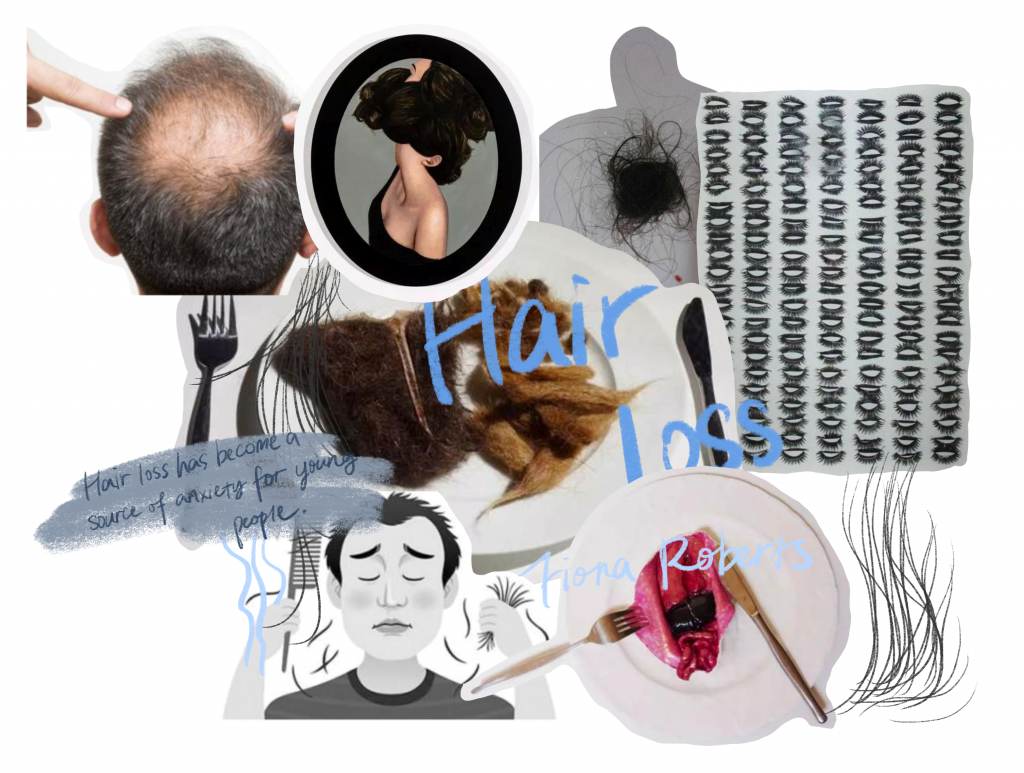
I tried to create a “hair exchange” called Haircult, which means a fanatical adoration of hair. In this place, people can exchange their hair for various commodities, such as the desires mentioned above. Everyone has a “hair account”, in which the number of hair is closely related to the health of the owner. Here, all the commodities are marked price, as long as you pay the corresponding hair, you can get what you want.
我尝试创造一个“头发交易所”,它的名字叫Haircult,意味着对头发的狂热崇拜。在这间交易所里,人们可以用头发换取各种各样的商品,例如上面提到的那些欲望。每人都拥有一个“头发账户”,里面的头发数量与主人的健康状态紧密相关。在这里,所有的商品都被标好了价格,只要支付相应的头发就可以获得想要的东西。

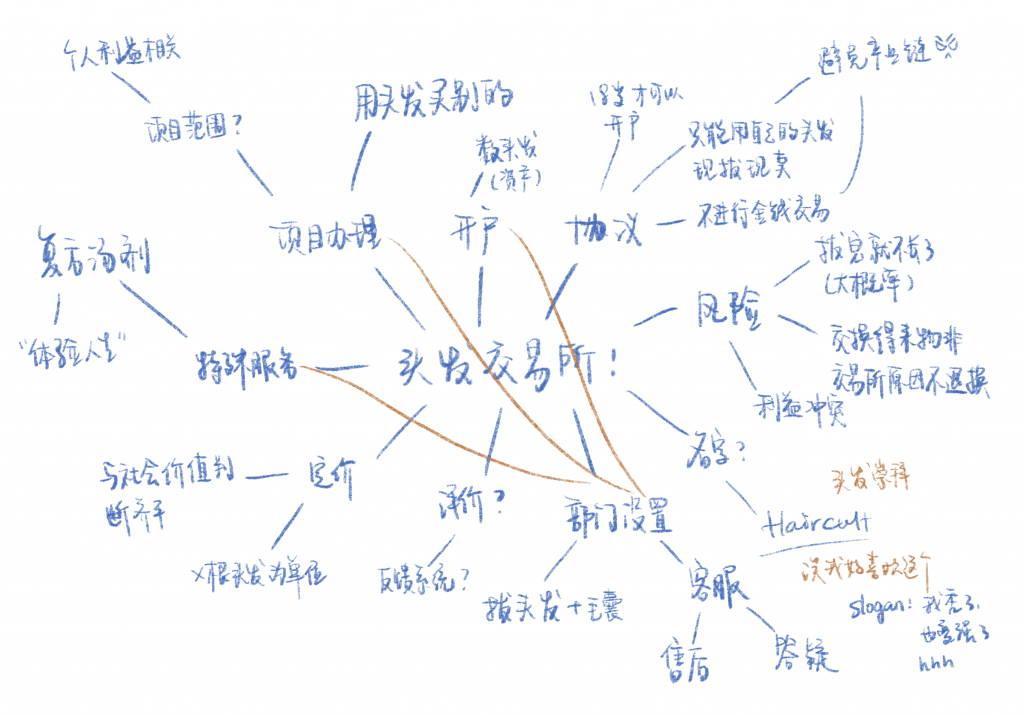
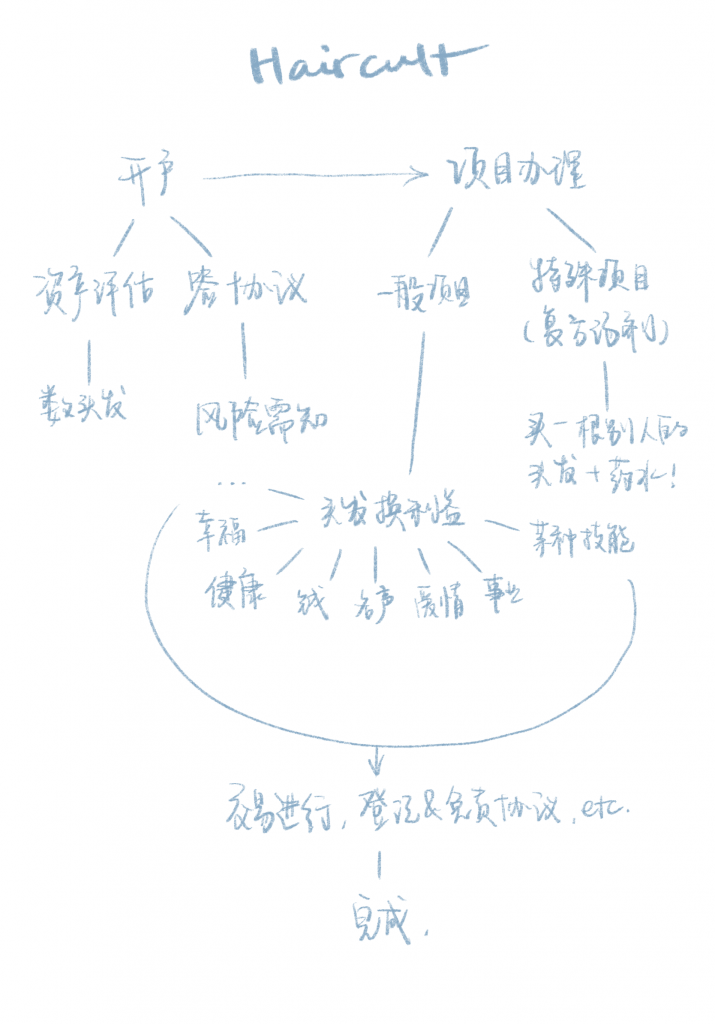
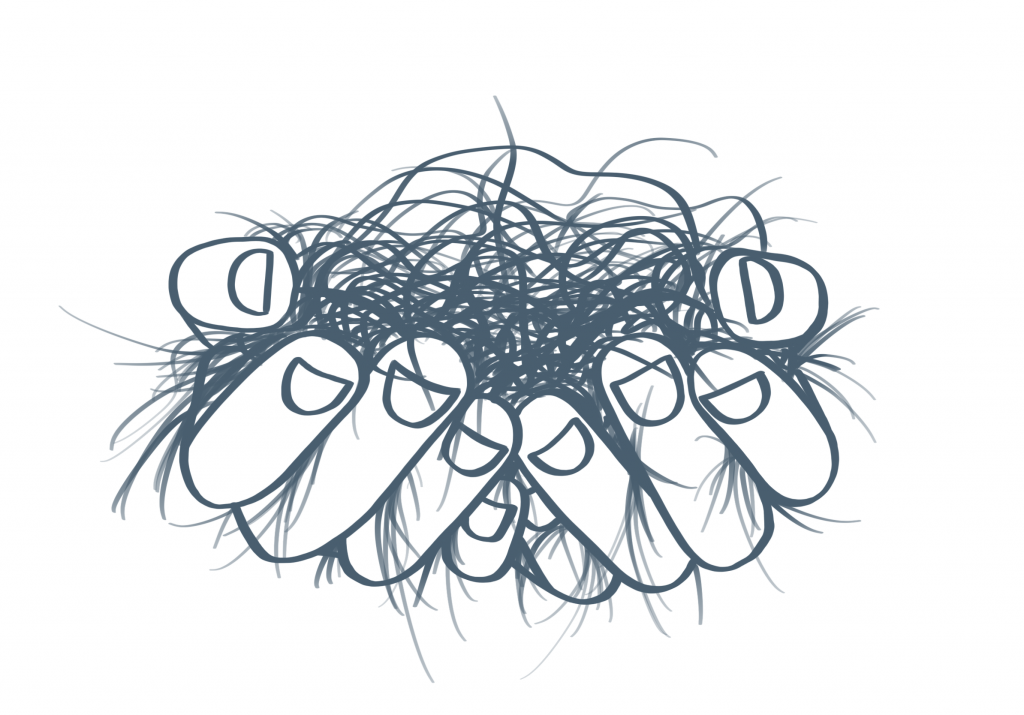
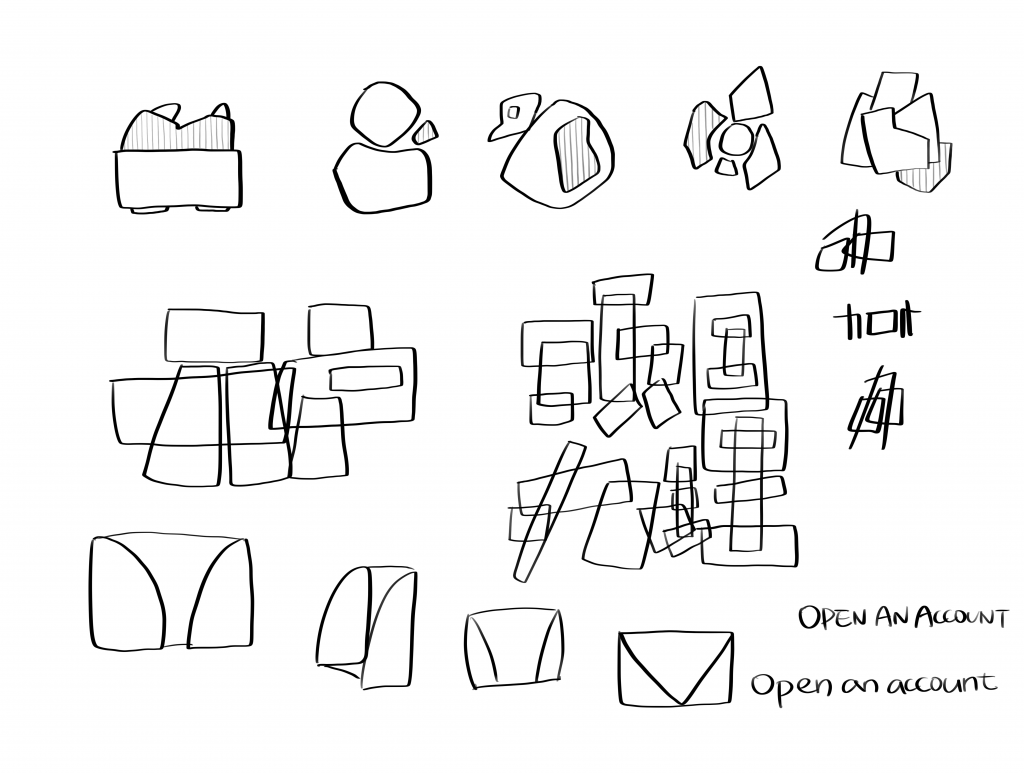
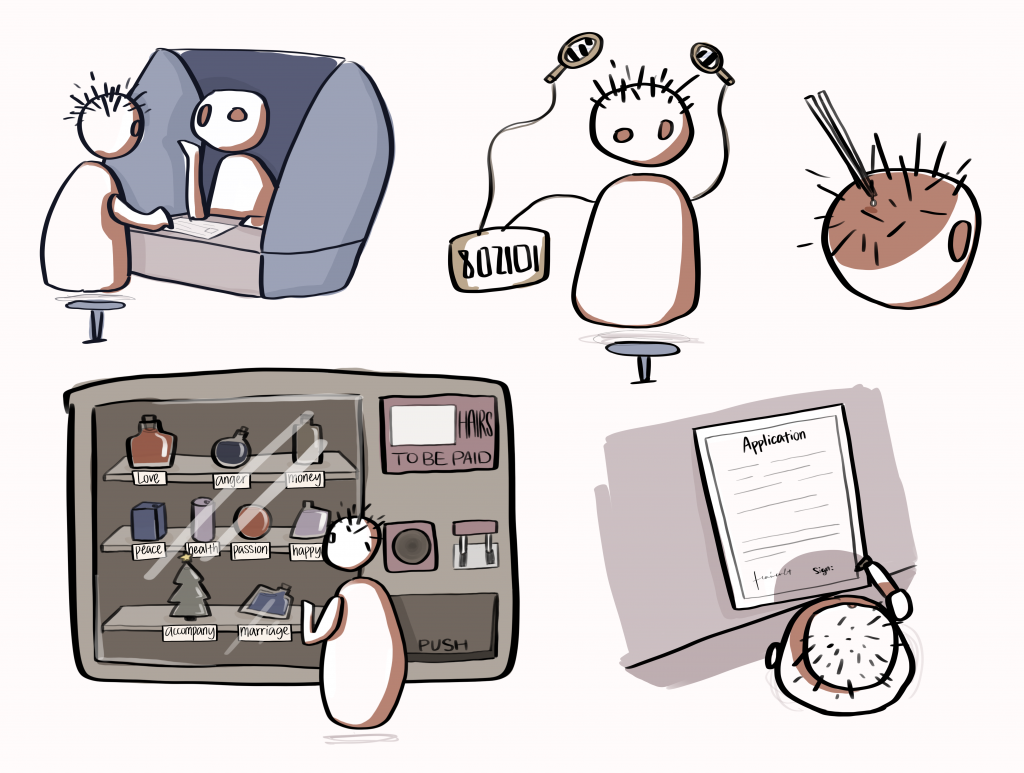

I want to use this way to explore what the society will be like when we can sacrifice our health for something outside us, so as to arouse people’s rethinking of their bodies and living conditions.
我想用这种方式探讨当我们可以为了身外之物牺牲健康时,社会将会是什么样的,以此唤醒人们对身体和生活状态的重新思考。